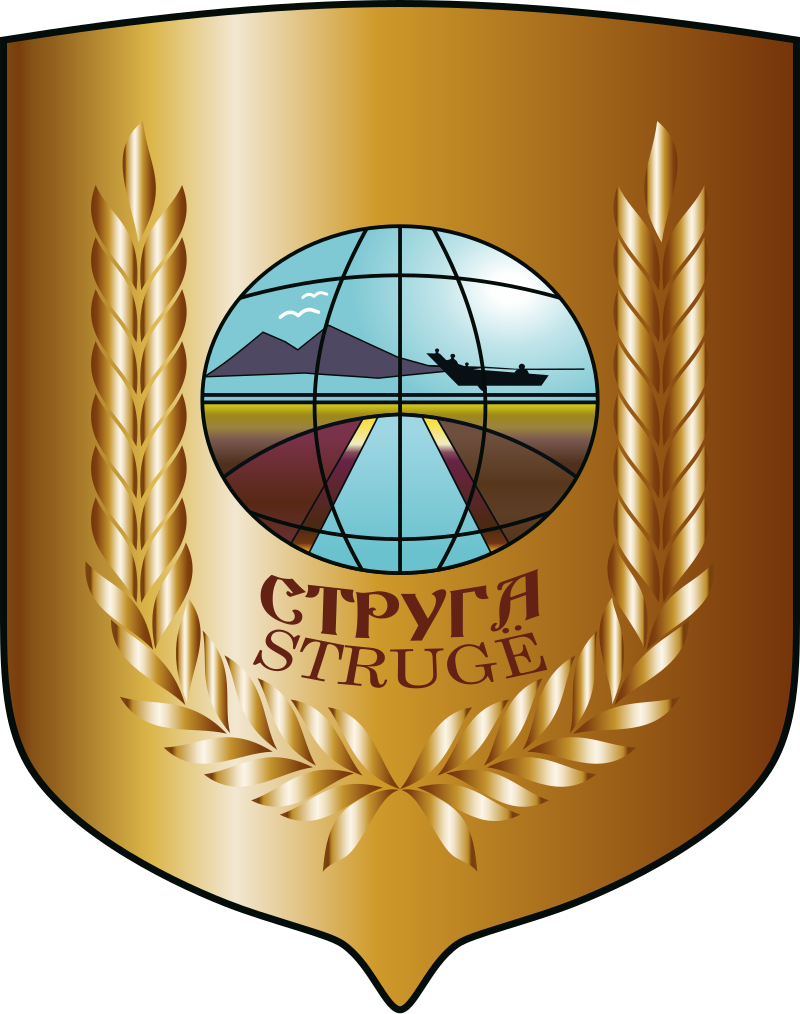
Struga is a city in the southwestern part of the Republic of Macedonia, lying in the plain of the Struga Field on both banks of the River Black Drin (Crn Drim) and on the northern shore of Lake Ohrid. It has a population of 15,009.
The name “Struga” originates from a pure and characteristic Slavic word. The people of the Struga and Ohrid regions offer several explanations for the origin of this name:
Struga is not merely a point on the map – it is a testament to centuries of life, to a people who have endured along the banks of the Drin, a city where every cobblestone carries the echo of the past. Archaeological evidence attests to life since the Neolithic period. Over time, Struga evolved from a Roman travel station into a spiritual and cultural center, feeling the breath of the Ottoman Empire and the whisper of the national awakening, when Macedonian identity was forged through the written and spoken word.
The ancient city of Enhalon, likely founded by the Illyrian tribe of the Dassaretii, was near today’s Struga. Important finds include a funerary stele (4th century), a colored glass vase from Egypt, a Roman milestone, and graves with decorative objects and ceramics. The first Christian missionary here was Bishop Erasmus of Antioch, under whom several churches were built.
After the arrival of the Slavs, the Bereziti tribe settled in the Struga area, mingling with the related Mijaks. It is believed that towards the end of the 6th or early 7th century, they founded present-day Struga, possibly on the ruins of an older non-Slavic settlement.
During Tsar Samuel’s reign, conditions in Struga were relatively good, though later Roman restoration brought economic decline and heavy taxation. Theophylact of Ohrid (1084–1108) complained that local fishermen and millers were taxed unjustly, and that efforts were made to suppress the Slavic liturgy in churches.
After the Battle of Maritsa (1371), Struga fell under Ottoman control, becoming part of the Sanjak of Ohrid. In 1582, this sanjak included Ohrid, Prespa, Debrca, Upper Debar, Župa, and Reka.
With the arrival of revolutionaries Hristo Uzunov and Nikola Rusinski, the VMRO in Struga gained strength. They introduced strict discipline, preserved morale, and organized training in the mountains. Revolutionary bands protected both peasants and landlords from banditry, earning broad support. Their activities prepared the region for the Ilinden Uprising.
Struga’s revolutionary area was divided into two sectors: “Drimkol” (Struga) and Malesija. Despite concerns about the terrain, the Smilevo Congress decided to rise in rebellion. Hristo Uzunov was appointed commander. After suppression, the Struga VMRO Committee helped affected villages, restored networks, and expanded women’s groups.
On November 26, 1915, Struga saw clashes between Bulgarian and Serbian forces. After the war, it was incorporated into the Kingdom of Serbs, Croats, and Slovenes, where the Macedonian people remained without rights.
In 1941, Struga fell under Italian occupation. It was liberated on November 8, 1944.
Struga is known as the “City of Poetry.” For more than half a century, it has hosted the world’s most significant poetry event – the Struga Poetry Evenings. Thousands of poets from around the globe recite their verses under the open sky, on the Bridge of Poetry, where the Drin carries their words to the lake and their emotions to eternity.
Other notable cultural events include:
Struga’s cuisine is the heart of the home – warm, welcoming, and full of soul. Specialties include:
Football club FK Struga Trim Lum is the pride of the city, representing Struga internationally in European competitions. Swimming in Lake Ohrid, rowing on the Drin, basketball, and athletics also thrive here, carried by youthful energy.
Struga is more than a place – Struga is a feeling.
It is the quiet return home whenever the heart longs for peace, beauty, and roots.
For those far away, Struga remains etched in memory; for those who wish to return, Struga – and Macedonia – are an embrace that never forgets.